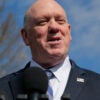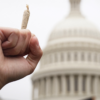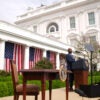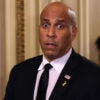Americans are blessed to have inherited a constitutional republic. If we are to keep it, we must vigilantly preserve the Constitution upon which it stands. As 2011 draws to a close, we made a list (and checked it twice!) of the year’s most important constitutional trends.
Nice: Congress begins to rediscover its (atrophied) constitutional muscles
The Daily Signal depends on the support of readers like you. Donate now
Congress kicked off the year with unprecedented reverence for the Constitution. Congress began the session with a ceremonial reading of the Constitution on the house floor, and then adopted a new rule that requires any proposed bill to cite its constitutional authority. While admirable, these measures have thus far failed to achieve their intended result. The potential solemnity of the reading ceremony was tainted by petty disputes and goofy mistakes (an entire section was skipped) and the citation rule has become little more thanan exercise in box checking. Congress still has a long way to go, but its newfound constitutional courage marks a welcome change from Pelosi’s “are you serious?” approach to the Constitution.
Nice: Grassroots Constitutionalism Stays Strong
Of course, Congress didn’t just decide to prioritize the constitution on a whim. The credit lies with the American people who have become fed up with government excesses. From their spontaneous origins in 2009, grassroots movements such as the Tea Party had gained enough strength by the 2010 elections to send Congress a strong message to respect the Constitution. From the many Constitution Day festivals across the nation to the numerous Tea Party rallies and the joint CNN/Tea Party primary debate, 2011 saw everyday Americans continue their efforts to restore limited, constitutional government.
Naughty: Constitutional Lawmaking Undermined
One of the most disturbing trends of 2011 was the Obama Administration’s willingness to skirt the Constitution’s law making process. In September, the Obama administration openly bypassed Congress by unilaterally issuing waivers to exempt states from the requirements of No Child Left Behind. Even more outrageous, Obamacare waivers (giving relief from the law’s most costly provisions) were given almost exclusively to political allies of the administration such as labor unions and Harry Reid’s home state of Nevada. Fully 20% went to unions and businesses (including luxury restaurants and financial firms) in Nancy Pelosi’s congressional district in San Francisco.
Naughty: Runaway Bureaucrats
Despite the country’s woes, bureaucrats had no qualms about burdening an already struggling economy with billions of dollars of (sometimes bizarre) regulations. Public outcry put an end to a few of the most ridiculous regulation such as the “Christmas tree tax.” But since bureaucrats are unelected and uncountable to Congress, they were largely undeterred. The Environmental Protection Agency, for example, usurped Congress’s legislative authority and issued new vehicle fuel-efficiency standards that (by its own estimates) will cost the economy $8.5 billion per year and raise the price of cars by at least $2,000. Just what we need to help the economy.
Nice: Congress tries to rein in Bureaucrats
This year Congress finally began to take practical steps to regain control of the legislative process. Most importantly, the House passed the REINS Act and the Regulatory Accountability Act, which would give Congress much needed authority to restrain the excesses of unaccountable bureaucrats. Although these bills are unlikely to pass the Senate, they have succeeded in turning public scrutiny upon the nation’s regulatory agencies and—most importantly—in creating a solid precedent for future reform efforts.
Nice: Constitutional Threats Averted
An important constitutional victory this year was the resounding defeat (at least for now) of the unconstitutional nullification movement. Several state legislatures attempted to declare Obamacare null and void and block federal laws in their state. Repealing Obamacare is certainly a key goal, but nullification has no basis in constitutional law and violates the whole idea of constitutional government. Ultimately, nullification was defeated in every state in which it was proposed. Equally crucial (though less decisively successful) was the vigilant opposition to the National Popular Vote movement (NPV), the scheme to replace the Electoral College by means of a constitutionally dubious interstate compact. Although it gained worrisome support in 2011, conservative organizations from ALEC to the Heritage Foundation were quick to warn of the constitutional and practical dangers of NPV. Thanks in part to these efforts, NPV continues to fall well short of the number of states needed bring the compact into effect.
Nice: Constitutional Challenge to Obamacare
While the nullification efforts were roundly defeated, conservatives did mount a very successful constitutional challenge to Obamacare. Several states passed a Health Care Freedom Actdesigned to provoke a legal challenge to Obamacare. A majority of states and several individuals then brought lawsuits against Obamacare. Appellate courts upheld some cases and struck down others. Most significantly, the U.S. Eleventh Circuit Court of Appeals upheld a suit brought by 26 states and the National Federation of Independent Business and declared the individual mandate unconstitutional. On November 14th, the Supreme Court announced that it would rule on the 11th Circuit Court’s decision in June 2012.
Naughty: Progressives Run Wild
2011 was above all a year of unbridled Progressivism. Ostensibly organized to protest crony capitalism, the Occupy Wall Street movement quickly devolved into unruly factions seeking redistributive government programs. In stark contrast to the Tea Party’s peaceful support of the Constitution, the occupiers blatantly disregarded property rights and the rule of law and denounced America’s representative government. Such prominent progressives as Peter Orzag and North Carolina’s Governor Bev Purdue suggested that America needs “less democracy” and more centralized administration. In his seminal speech in Osawatomie, Obama drew upon populist rhetoric to advocate a thoroughly progressive vision of government where bureaucratic experts enforce political and economic “fairness” rather than letting the American people govern themselves.






























